Looking out over a sun porch in her Tampa, Fla., home, Renata Senter, 76, recounts the moment she fled — and suddenly became a child refugee in World War II Germany.
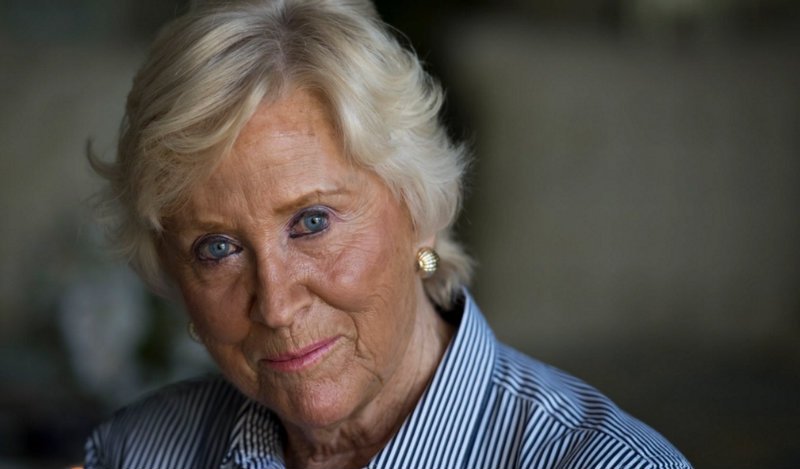
She recalls a wildly intoxicated man swaying at the front door of her family’s home, warning of the invading Russians on the outskirts of town. She, her mother and two sisters — including an infant — escaped with a single suitcase, jumping the last train out of town. They reached her grandparents’ house in West Germany, where they crouched nightly beneath the stairs, praying the relentless bombs would not find them.
Only 7 years old at the time, Renata, however, found hope amid the fears and mounting rubble around her. It came in the form of gleaming white paper, “the likes of which I had never seen,” she says. And it arrived in a simple box sent from a stranger in the United States — one of the original CARE Packages Americans would send to survivors in war-torn Europe.
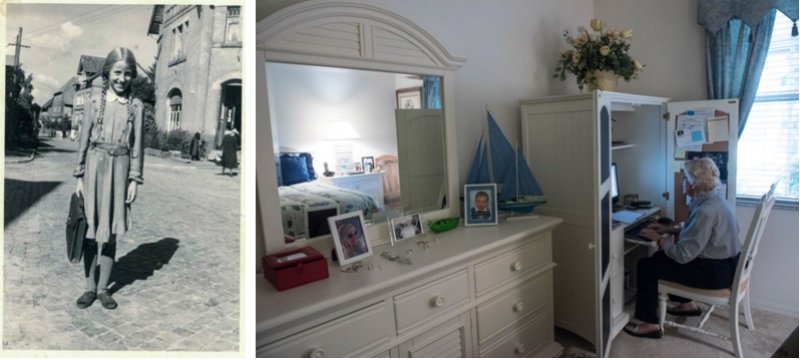
The paper – and the moment she unpacked it — changed her life, she says. It contrasted warmly with the cold slate that had been her only writing surface as a young student, but it represented so much more, she says. That it came from a stranger — the “enemy” — in a far-away place captured her young imagination, inspiring her to chase her dreams. Seventy years later, many of those dreams fulfilled, she wishes for a similarly magical moment for another child refugee in another land far away. And it starts with a letter.
“I would like to get to know you,” she writes to 13-year-old Duha, a Syrian refugee living with her family in Jordan, “and hope that I will be able to help you in a small way achieve your goal.” That goal is to become a doctor, Duha says, so she can help people, so she can mend their bodies and their spirits.
Nearly 7,000 miles away, a tearful Duha recounts her own “very difficult” life in a Syrian refugee camp where summers were hot and dusty and winter rains flooded her family’s tent. “Every day we received meals, but sometimes they would be spoiled, and we would have to throw them away and go hungry until the next day.”
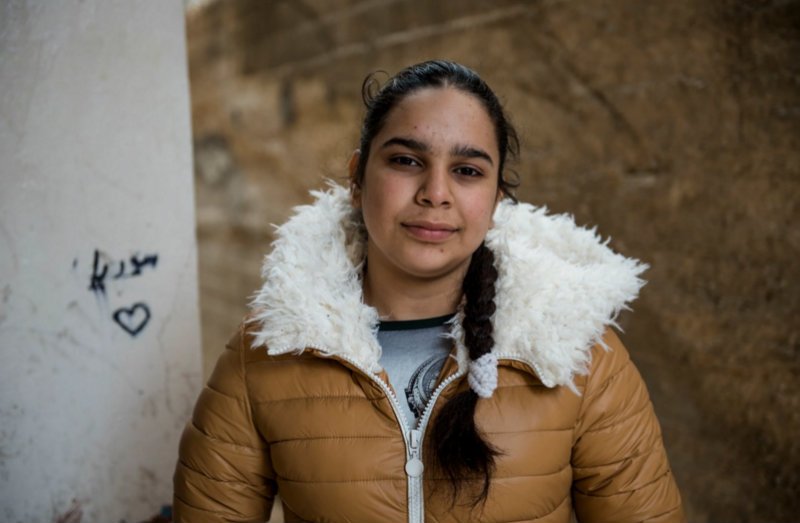
She clings to hope, however. In spite of living nearly half her life under a cloud of war. In spite of the fears, the demonstrations and armed clashes, the frequent home inspections that drove her family from their Syrian home, out of the once-peaceful neighborhood, away from the swing she remembers so fondly in the garden. She finds encouragement in Renata’s letter and continues reading. “…I do hope that you have a chance to go to school,” the letter reads.
Duha does go to school, and she excels there, but it’s not always easy, she says. “When you’re with your people, everything is better,” she says, alluding to the difficulty of life in a new place, far from home, where everyone is a stranger. “Even at school, they always try to kill our spirit, saying, ‘You Syrians have no future here.’”

Duha reads on, learning of the glimmering white paper that so long ago inspired Renata to imagine her own brighter day. “The wonderful gesture left a tremendous impression upon me,” the letter reads. “To the point I told my mother, ‘When I grow up, I will go to America.’”
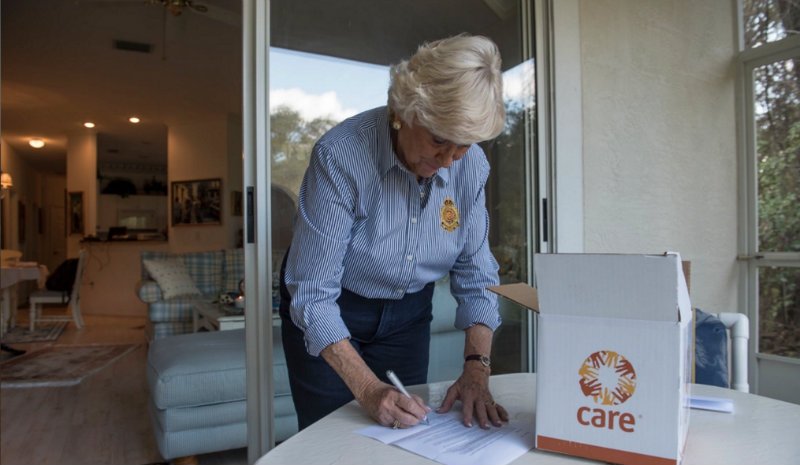
Duha doesn’t so much dream of going away to America as she does of returning home to Syria, to her friends, her school, her neighborhood — her swing. Inside the box that contained the letter Duha also finds a small journal Renata had packed in the hope that the white pages would inspire another child refugee living through difficult times. But Duha says it’s the paper in her hands, the one with Renata’s words, that will stick with her forever. “The letter from Renata encourages me very much,” Duha says, “because she is telling me to always have hope.”
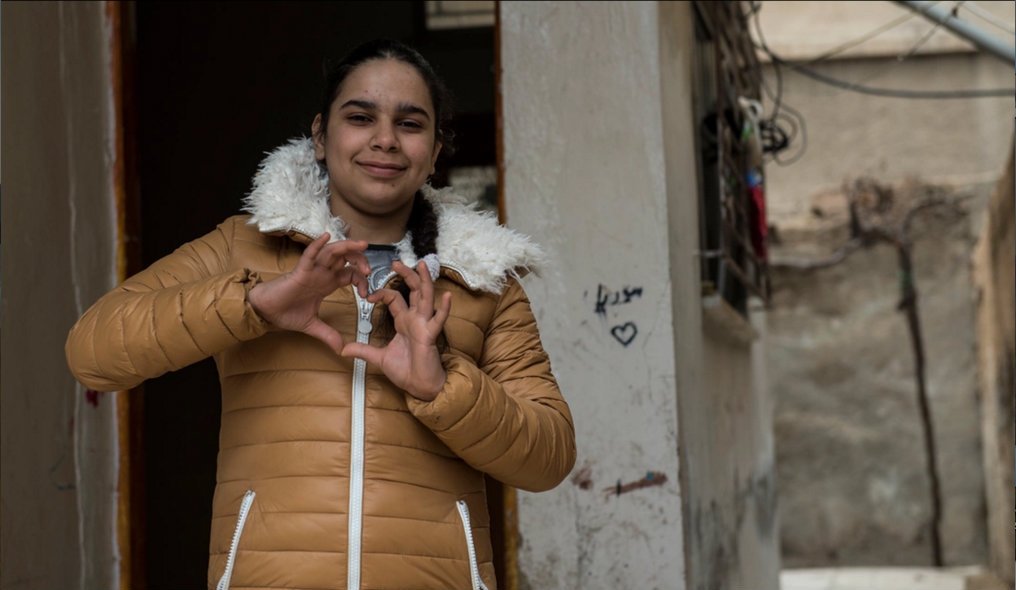
Duha doesn’t so much dream of going away to America as she does of returning home to Syria, to her friends, her school, her neighborhood — her swing. Inside the box that contained the letter Duha also finds a small journal Renata had packed in the hope that the white pages would inspire another child refugee living through difficult times. But Duha says it’s the paper in her hands, the one with Renata’s words, that will stick with her forever. “The letter from Renata encourages me very much,” Duha says, “because she is telling me to always have hope.”
Send your own letter of hope by going to https://my.care.org/site/SPageNavigator/CARE_SpecialDelivery.html
This article was contributed by CARE. The views expressed here are not necessarily those of each of the partners of Global Citizen.